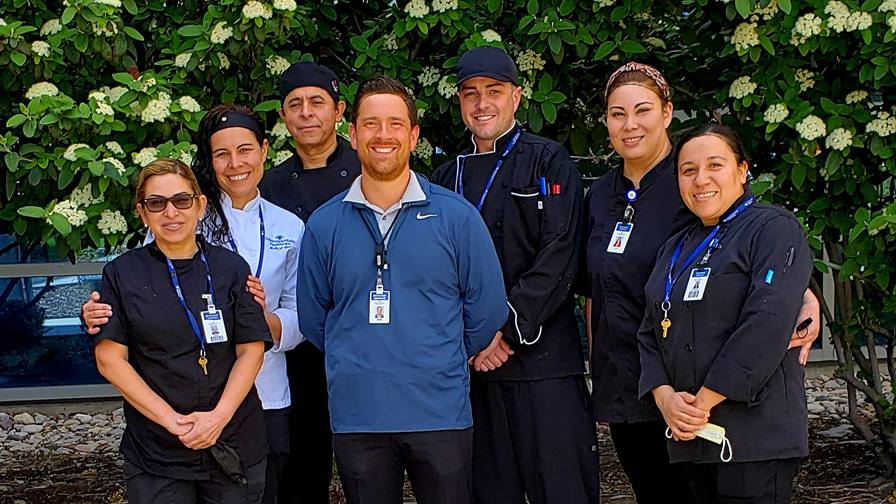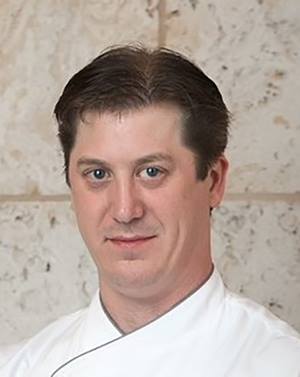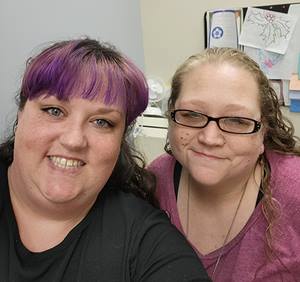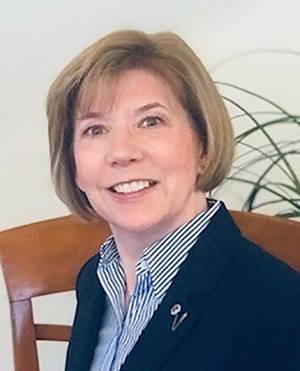

Christopher Delissio, corporate executive chef de cuisine, says the culinary team at Intermountain Medical Center rose to the challenge of helping other caregivers in need.
Caregivers work hard to put food on their tables but rarely are they asked to put in extra hours to put food on someone else’s table. The Intermountain Medical Center culinary team did exactly that during the last COVID-19 surge.
Combating COVID-19 required sacrifice throughout Intermountain and leaders searched for ways to support their teams who were being asked to work long hours under very trying circumstances. Each area found its own ways to support one another and continue serving, but there wasn’t one singular affordable approach that could be quickly applied evenly throughout Intermountain that would bring relief to all. This is just one story of a small team who willingly worked long hours to help hundreds of overworked caregivers in need.
Karen Brownell, associate vice president of Laboratory Services, says the labs were processing about 2,000 COVID-19 tests a day just before Christmas of 2021.
“When I came back in the beginning of January, it just started to skyrocket and we were getting 10,000 specimens a day on some days, if not more,” she says. “We were falling behind and it became an all-hands-on-deck situation.”

Jewels Emory and Holly King say the Express Meals they received were wonderful.
The all-hands-on-deck call meant many caregivers who’d been trained to help process COVID-19 tests during a previous surge were drafted again to help. Managers, directors, pathologists, PhDs and others went to work on the front lines to help the lab caregivers keep up with the demand that was taxing them to the limit.
One of the things they’d tried doing was bringing in meals during the day to help out the caregivers working long hours, Karen says. Then someone suggested they send Express Meals home with caregivers in the Central Lab. Nutrition Services had been promoting Express Meals for caregivers in some areas, especially after the pandemic hit, but had never before tackled a project this big. The prepared meals for four can be taken home and heated up.
The idea was pitched to Christopher Delissio, corporate executive chef de cuisine and Alex Govern, corporate executive chef. He talked with Tulia-Ines Ibanez, chef de cuisine, and Christopher Hawkins, Nutrition Services manager at Intermountain Medical Center, to ask if they thought it could be done on such short notice, at a time when COVID-19 was impacting their own staffers.
“They were like, ‘Give it to us. We’ll make it happen,’” Christopher Delissio says. “And that was amazing for us to see. We have so many people on our team who have the attitude of, ‘It’s not what we can do, it’s what we will do.’”
Tuli, as Tulia-Ines Ibanez is often called by her team, says their sacrifice required six people on her team to put out 300 extra meals a day, on top of their regular duties, which meant they’d often have to work from 5 a.m. to 7 p.m. to meet the demand.
“We’re so lucky to have a team that really loves being in the kitchen and really loves people, so we said, ‘Hey, we really need to do this,’” Tuli says. “We just wanted to help or give these people five minutes of happiness in their lives. That’s why we love to serve. That’s our mission.”

Robin Aufdenkampe, assistant vice president for Nutrition Services says the sacrifices this culinary team made to help others was "worth celebrating."
They also made some Express Meals for other areas of the company that requested them, she says.
“No one complained,” Tuli says of her staff. “No one ever said, ‘I’m tired; I have to go home.’ Never. Actually, it was the opposite: They came every day, after their regular hours, and would say, ‘Okay, what do you need today? How many people are we going to cook for today?’”
Karen says she couldn’t believe the response. People were so grateful for the meals. “There’d be lines down the hallways,” she says.
Jewels Emory, enhanced registrar in the Central Lab, is a mom of three kids who was working 12-hour days and taking college classes at night.
“We were working six 12-hour shifts a week,” she says. “Going home to feed my kids was just one more important thing I needed to do. It was such a lifesaver to be able to walk out of the lab, grab a meal on the way out, and warm it up at home. I got to have so much more time snuggling my kids and I was able to talk to them about their day or hear about their touchdown, instead of just saying, ‘Okay, mom’s got to go to bed. Love you.’ It was a huge, huge lifesaver. It was one more thing I didn’t have to worry about so I could focus on my job, my kids, and school.”
Holly King, a patient account services supervisor who also works in the Central Lab, says her four kids are between seven and 14 years old.
“Getting the meals just helped immensely,” she says. “It took a lot of pressure off of me. I didn’t have to go grocery shopping. I didn’t have to worry about dinner, and I knew my kids were getting something nutritious to eat. My kids loved the meals. They were so good. It was a crowd pleaser every time.”
The Express Meals idea was tested out as the surge was beginning to drop off but caregivers still talked about how much they appreciated the time the meals bought them for their family.
Alicia Simon, Central Lab director, says her youngest is 21, so for her, it wasn’t about making meals for her children.
“That was when I finally wasn’t working 12 to 16-hour days anymore,” she says of the time the meals were offered. “I was able to go sit down with my husband and have a delicious meal together and talk about our day. We avoided the ‘COVID’ word as we talked. It was great.”
While the experiment was very popular for the overworked caregivers, it also proved costly and with staffing levels back then, the meals couldn’t be offered as a solution to other caregivers who would’ve appreciated them. Other areas experimented with different approaches to help out caregivers.
Robin Aufdenkampe, assistant vice president for Nutrition Services, says the sacrifice these six caregivers and others made is “worth celebrating.”
“This team unselfishly sacrificed for people they probably didn’t even know,” Robin says. “Tuli models a kind and loving approach, and she’s built a team that thinks of others first.”
Tuli says the core group that made the meals sometimes got help from others who knew what they were doing. Christopher Delissio and Christopher Hawkins, for example, came and worked with the kitchen staff at times to help them meet their service goals, she says.
While it’s not likely that Nutrition Services will ever be asked to repeat the type of large-scale meal distribution like it did in February, Robin still has a vision for how Express Meals can help support caregivers. She wants to see the meals made on a regular basis at Intermountain facilities so caregivers can purchase them on the way home or be available for departments and teams to use them as a recognition or reward for caregivers. They aren’t available at every hospital now but she’d like to see that happen.
“The meals are very fresh,” she says. “And what we found is these meals are less expensive than other prepared meals on the market because we don’t have the cost of delivery and shipping. When people purchase these Express Chef meals, they can be assured they’re getting high quality, fresh delicious meals.”
Apparently, the quality of the meals isn’t news to the Central Lab caregivers and others who received them. And Tuli knows her staff put out a good product. In fact, during the busiest periods, she came up with her own reward for her staff. She let them make a few extra Express Meals so they could take them home to their own families. After all, they’d already put food on hundreds of other tables, now they could do it for themselves.

